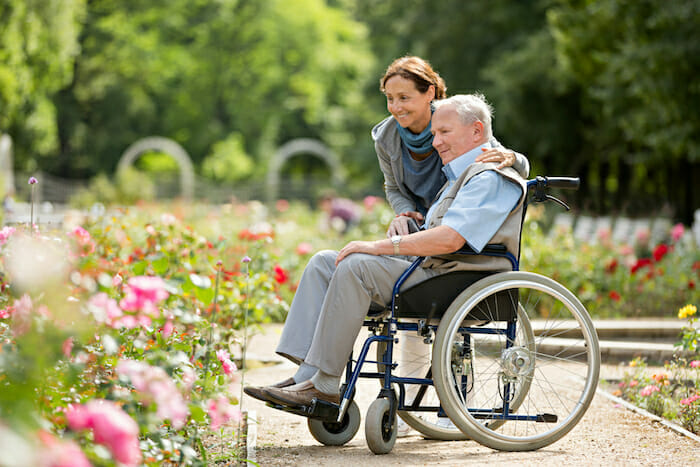Urinary Tract Infections, commonly known as UTIs, are a significant concern for elderly women. They are not only painful but can also lead to severe health complications if not managed properly. Understanding how to prevent UTI in elderly women is crucial in maintaining their well-being and ensuring a healthier life. In this article, we will delve into practical strategies, causes, and expert advice on preventing UTIs in elderly women.

Understanding UTIs
Before we dive into prevention methods, it’s essential to understand what UTIs are and their impact on the senior population. UTIs are infections that affect the urinary tract, which includes the kidneys, ureters, bladder, and urethra. The primary cause of UTIs is bacteria entering the urinary tract, leading to infection.
Why Are Elderly Women More Susceptible?
Elderly women are more prone to UTIs due to several factors, including hormonal changes after menopause, weaker immune systems, and potential comorbidities like diabetes. Additionally, urinary retention and usage of catheters increase the risk of infections.
Preventive Measures
Now that we have a basic understanding of UTIs, let’s explore effective measures to prevent them in elderly women.
1. Hydrate Adequately
Encourage elderly women to drink plenty of fluids. Staying hydrated helps flush out bacteria from the urinary tract. Ideally, they should consume around 6 to 8 glasses of water daily, but the amount may vary depending on individual health needs.
2. Maintain Proper Hygiene
Practicing good personal hygiene is essential. Educate them to wipe from front to back after using the restroom to prevent bacteria from spreading to the urinary tract.
3. Schedule Regular Bathroom Visits
Sometimes, seniors may hesitate or forget to use the bathroom. Regularly scheduled bathroom visits can prevent urine retention, reducing the risk of bacterial growth.
4. Consider Diet Adjustments
Encourage a balanced diet rich in fruits and vegetables. Foods like cranberries and blueberries contain ingredients that may help prevent UTIs. Consult with healthcare providers before making significant dietary changes.
5. Encourage Wearable Incontinence Pads
For women experiencing incontinence issues, using proper incontinence pads can help maintain dryness and prevent bacteria growth.
Medical Interventions
In some cases, medical interventions may be necessary to prevent recurring UTIs in elderly women.
6. Discuss Medications
Consult with healthcare providers on appropriate medications that may be prescribed to lower the risk of UTIs, especially if they are recurrent.
7. Monitor Other Health Conditions
Conditions such as diabetes or kidney issues may impact UTI risk. Regular monitoring and management of these conditions can help reduce the likelihood of infections.
The Role of Family and Caregivers
Family members and caregivers play a crucial role in preventing UTIs in elderly women. They must be proactive in assisting with hydration, diet monitoring, and ensuring personal hygiene.
8. Educate and Empower
Education is key. Empower caregivers with the necessary knowledge and tools to prevent infections. This might include seminars or resources on proper senior care.
9. Regular Health Assessments
Encourage regular medical check-ups to catch any signs of potential UTIs early, minimizing risks and promoting timely treatment.
10. Invest in Quality Care Products
Invest in high-quality care products designed for seniors, like easy-to-use incontinence pads, which can significantly help in maintaining hygiene.
Identifying Symptoms Early
Recognizing UTI symptoms early is critical in providing immediate treatment and preventing complications. Symptoms may include a frequent need to urinate, pain or burning sensation during urination, and cloudy urine.
11. Communicate Openly
Encourage elderly women to communicate openly about any symptoms they are experiencing. Effective communication ensures timely diagnosis and treatment.
12. Keep Track of Symptoms
Maintaining a log of symptoms and any changes in health can help healthcare professionals provide better care and prevent misdiagnosis.
Understanding the Importance of Professional Care
Professional care for elderly women prone to UTIs is essential. Medical professionals can provide expert advice on preventive care tailored to the individual’s health needs.
13. Build a Relationship with Healthcare Providers
Fostering a strong relationship with healthcare providers ensures that elderly women receive the best possible care and advice. Regular visits to the doctor can also help in tracking overall health and UTI prevention.
14. Discuss Prevention Plans
During medical visits, make sure to discuss specific prevention plans tailored to each woman’s health status and lifestyle.
Utilizing Community Resources
Many communities offer resources and support networks for elderly care. Utilizing these can provide additional support in preventing UTIs.
15. Engage in Community Programs
Look for community programs that focus on senior health and well-being. Such programs can offer useful information and support systems.

FAQ Section
Can cranberry juice prevent UTIs in elderly women?
Some studies suggest that cranberries may help prevent UTIs by preventing bacteria from adhering to the urinary tract walls. However, it’s essential to consult healthcare providers for personalized advice.
How often should elderly women see a doctor for UTIs?
If they have recurring infections, it’s wise to have regular check-ups. Otherwise, annual visits should typically suffice to monitor overall health.
What if symptoms persist even after treatment?
If symptoms persist, it’s critical to return to the healthcare provider for further evaluation. Persistent symptoms may indicate resistant bacteria requiring different treatments.
By following these comprehensive prevention tips and maintaining open communication with healthcare providers, elderly women and their caregivers can significantly reduce the risk of UTIs, ensuring a healthier, more comfortable life. To read more on senior care, you can visit tips for taking care of elderly and learn more about maintaining elderly health. Additionally, for practical information on related senior issues, you might find our articles on treating dizziness and increasing appetite valuable aids.
This article contains affiliate links. We may earn a commission at no extra cost to you.

